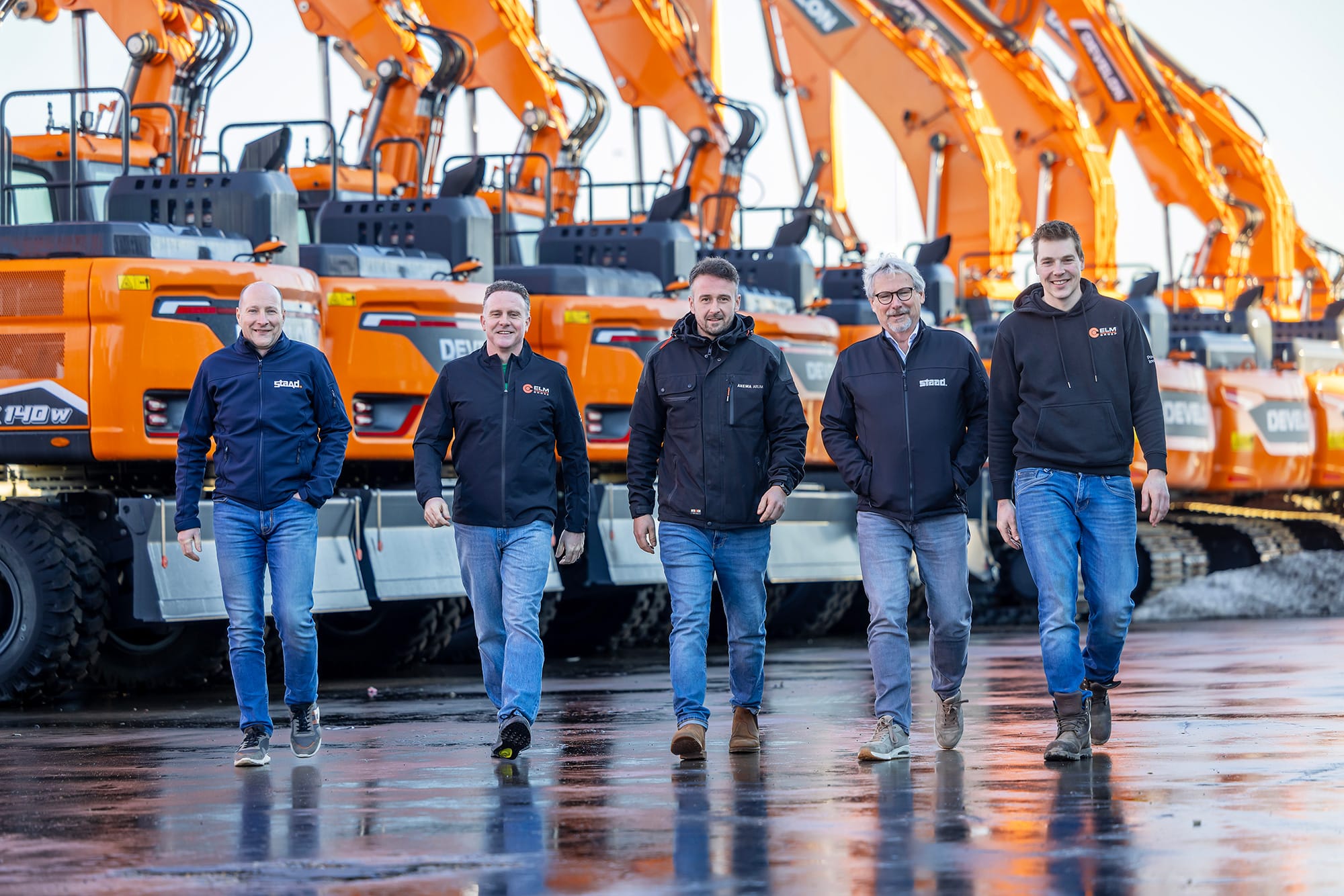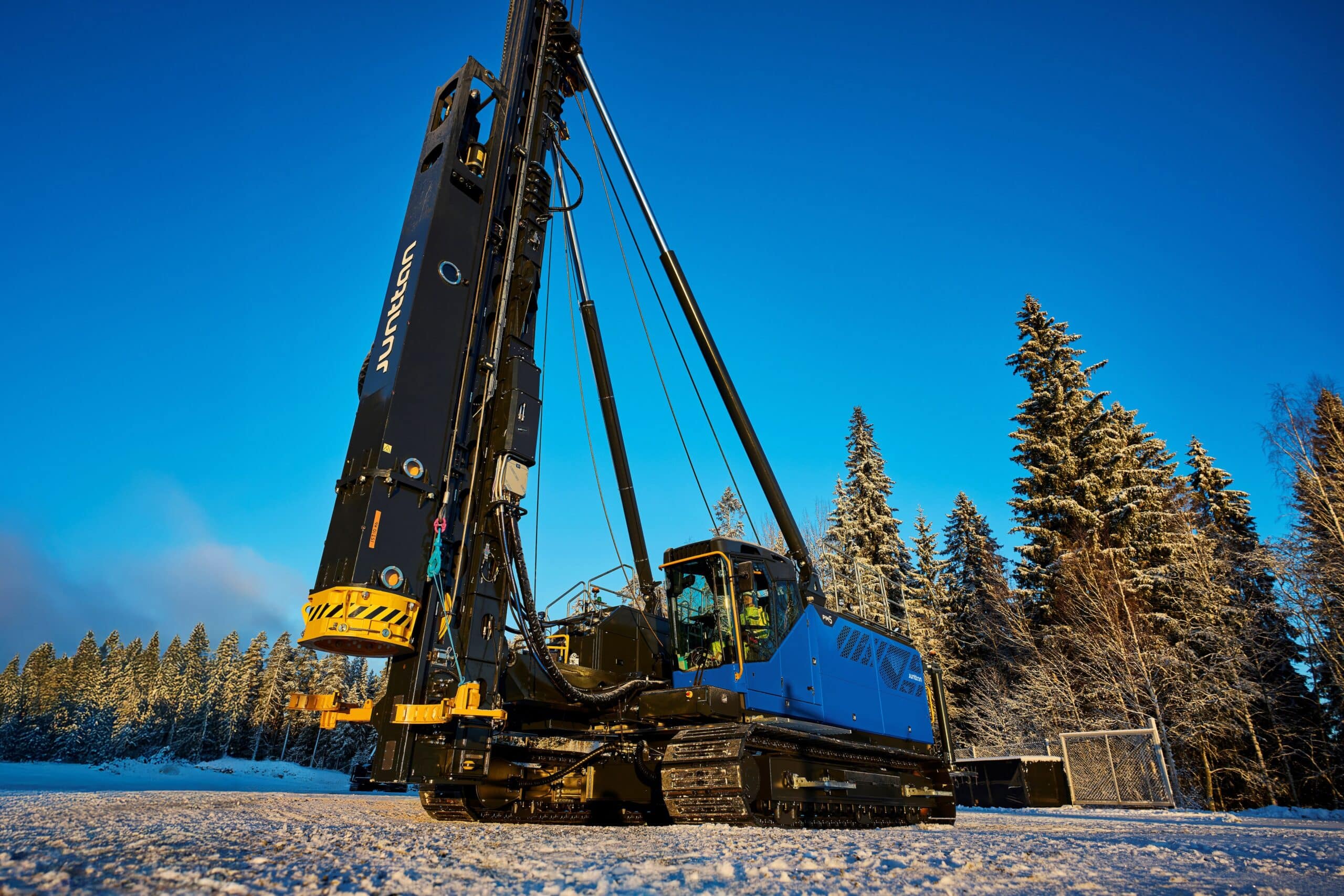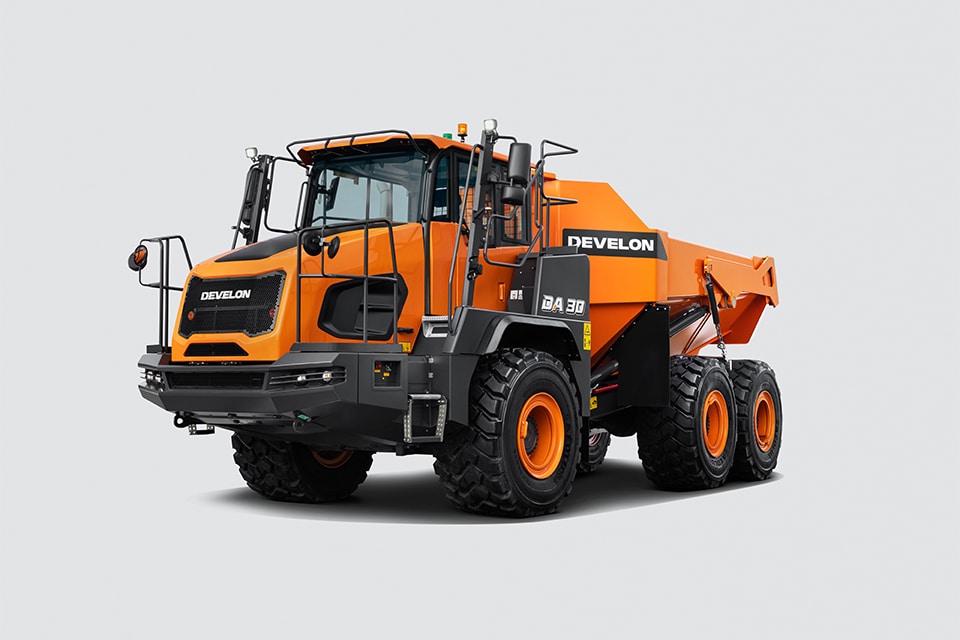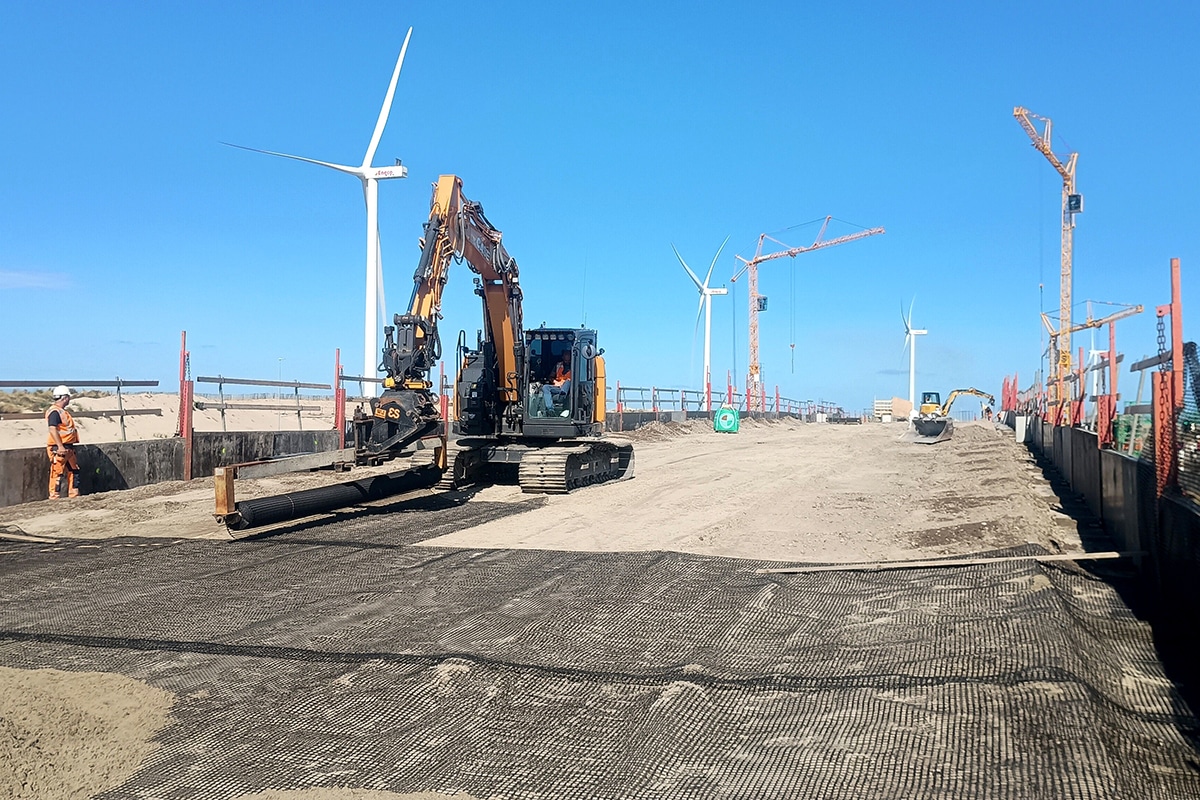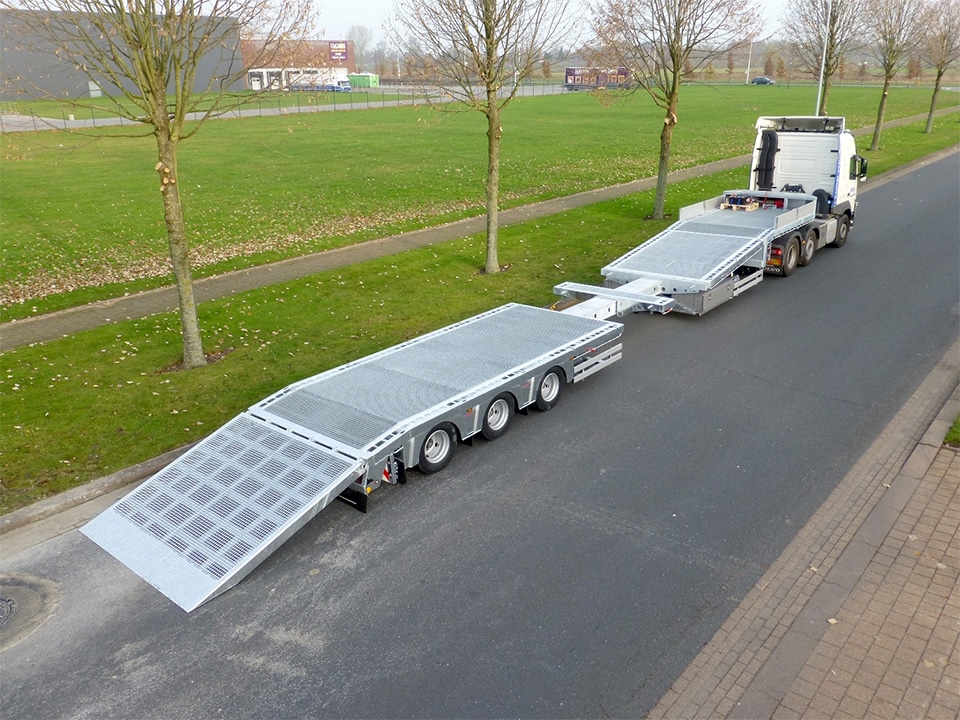
'We make what another will not or cannot'
"Preferably something that doesn't yet exist and making sure that this is still allowed to go on the road safely." Trias Trailers does that so well that a second location of no less than 3,000 m² with a completely new welding hall will soon be opened, where energy-neutral production can take place.
Trias Trailers has existed since 1959. In the early years, the company produced so-called iron dogs, carts equipped with three wheels that milkmen, peelers, bakers and other door-to-door salesmen drove around with in the 1950s and 1960s. Later they became chassis for trailers and semi-trailers for street trading; fish or French fry stalls and refrigerated trucks.
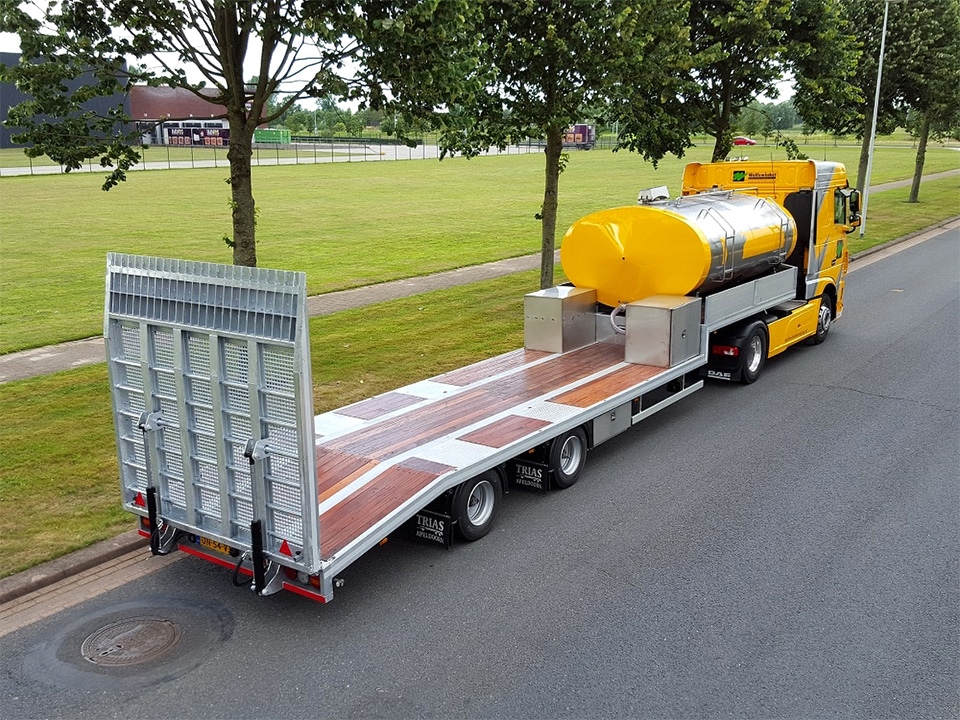
In 1989, Oosterkamp started a summer job at Trias before taking over the company in 1996. "Since then, we have built it into a company that currently employs 25 people and manufactures between 100 and 120 vehicles a year," Oosterkamp says. "And this involves vehicles in the broadest sense of the word. From material trucks used to transport scaffolding parts, for example, to ballast trucks for tower cranes or the transport of telehandlers and earth-moving equipment. We are very versatile."
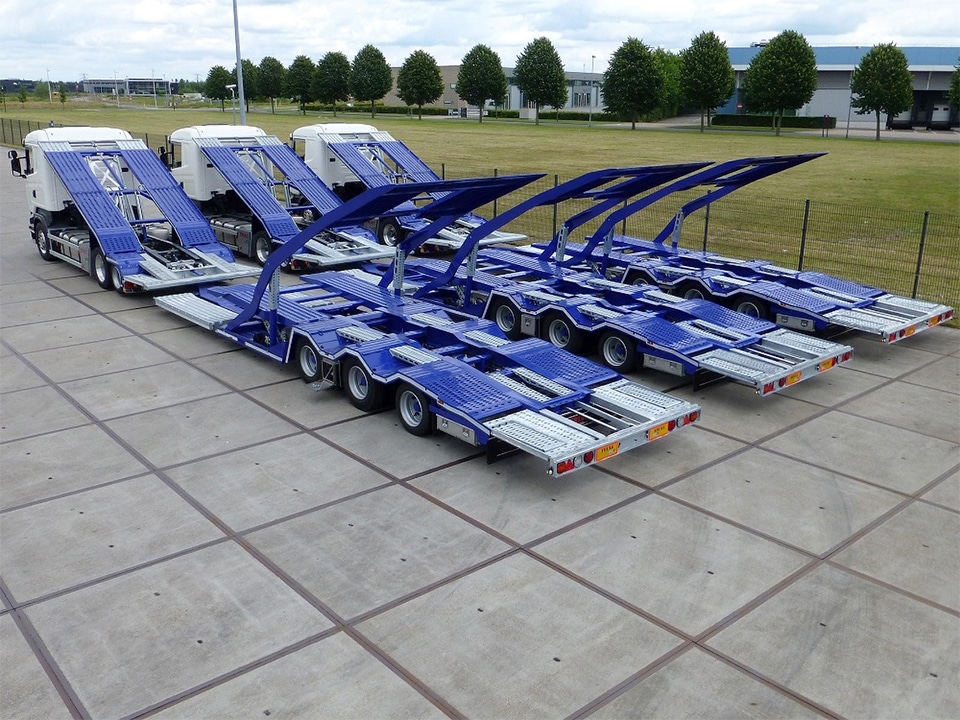
HYDRAULICALLY LIFTABLE
To illustrate, Oosterkamp tells of one of the latest jobs, in which Trias is building a semi-trailer-trailer for a company that collects chunks of Styrofoam to process into the insulation granules used in cavity walls. "The bin on that trailer can be hydraulically lifted up 1.25 meters. On site, that bin is then loaded with Styrofoam and once it is full we pull the roof back down to a height of 4 meters. That way the company can take 240 cubic meters of material instead of 180. In that same combination is a bag where they can blow the processed insulation pellets into for on-site processing."
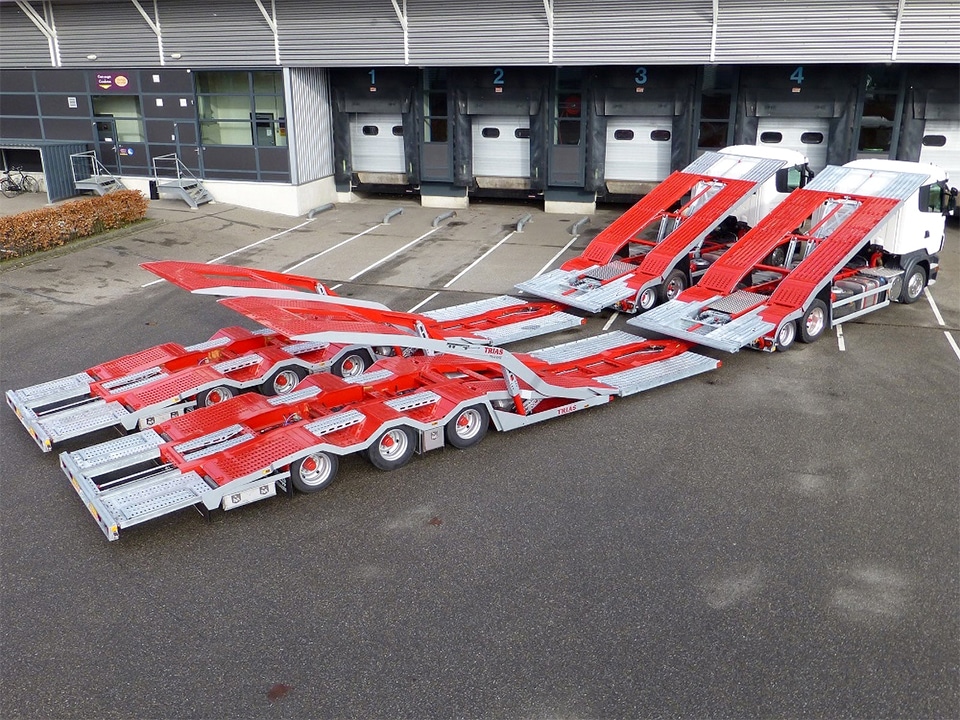
Another example: Trias is currently manufacturing undercarriages for Air Liquide Belgium, a company that transports gas cylinders. Oosterkamp: "We make undercarriages that lock automatically so that the crates with gas cylinders no longer need to be secured with straps. We also make many undercarriages for Theo Mulder, which builds trailers for refrigerated transport." Trias also builds trailers for transporting driving plates, on which a crane is built. "The crane can then be used to put the driving plates in place. The combination can also be steered with it, so the driver does not have to return to his cabin every time to drive backwards a bit. Again, saves a lot of time."
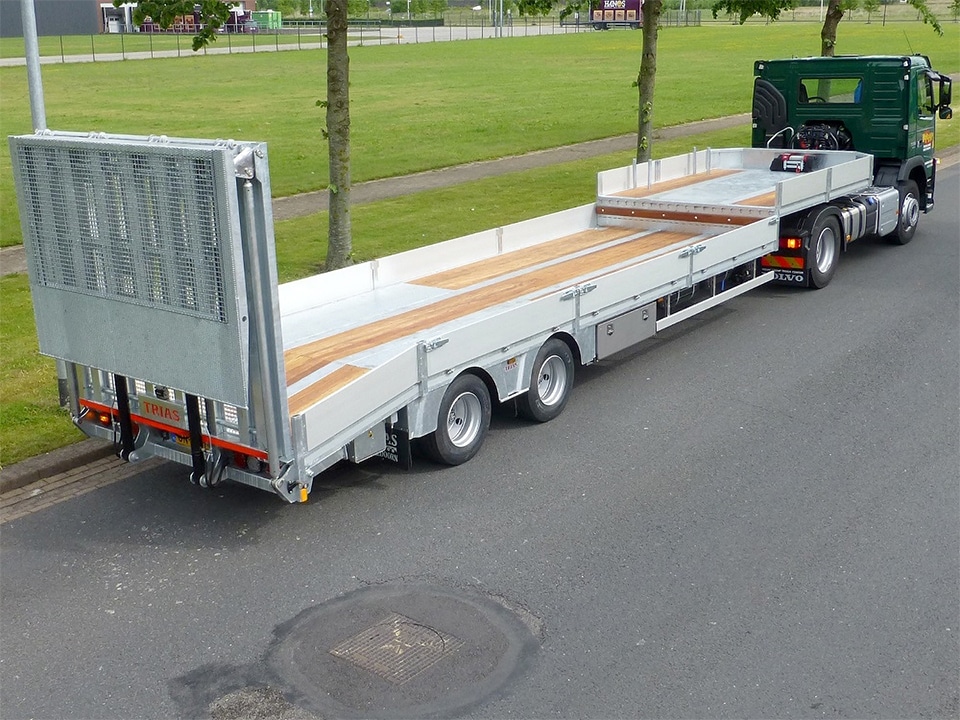
CUSTOM-MADE ONLY
Trias almost exclusively builds custom-made undercarriages and trailers, never actually in series. "We have sometimes made a series of 24 trailers for one customer, but we actually find that boring very quickly," Oosterkamp laughs. So then we prefer special extra-long, extendable or folding trailers for car, truck and heavy equipment transport. "And we have just started building a three-axle trailer that can be taken apart. The rear two axles can be extended, leaving a single-axle trailer that is extremely maneuverable in urban areas. Because that one axle is also steered, as is the rear one."
Trias' order book is well filled. Not for nothing is invested in a new location with a brand new welding hall. Oosterkamp attributes the success to the fact that Trias listens very carefully to what a customer wants. "And we really want to make what the customer wants. We operate in the area between legislation and what is technically possible and quite often make things that someone else does not want or cannot make. Many other companies opt for standard production, which gives less headaches. But that is precisely what we enjoy and find a challenge."
Another unique selling point of Trias is that all bases are fully galvanized. Inside and out. "All hollow spaces in our undercarriages are fully immersed in a zinc bath. This also applies to the extendable parts. So no trailer of ours can corrode from the inside. The only thing that won't last more than 20 years with us are wear parts like the axles. The rest of the chassis is indestructible."
